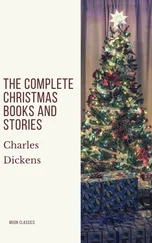"What do you mean, Belinda?" demanded Mr. Pocket.
"Sophia has told you," said Mrs. Pocket. "Did I not see her with my own eyes and hear her with my own ears, come into the room just now and ask to speak to you?"
"But has she not taken me down stairs, Belinda," returned Mr. Pocket, "and shown me the woman, and the bundle too?"
"And do you defend her, Matthew," said Mrs. Pocket, "for making mischief?"
Mr. Pocket uttered a dismal groan.
"Am I, grandpapa's granddaughter, to be nothing in the house?" said Mrs. Pocket. "Besides, the cook has always been a very nice respectful woman, and said in the most natural manner when she came to look after the situation, that she felt I was born to be a Duchess."
There was a sofa where Mr. Pocket stood, and he dropped upon it in the attitude of the Dying Gladiator. Still in that attitude he said, with a hollow voice, "Good night, Mr. Pip," when I deemed it advisable to go to bed and leave him.


After two or three days, when I had established myself in my room and had gone backwards and forwards to London several times, and had ordered all I wanted of my tradesmen, Mr. Pocket and I had a long talk together. He knew more of my intended career than I knew myself, for he referred to his having been told by Mr. Jaggers that I was not designed for any profession, and that I should be well enough educated for my destiny if I could "hold my own" with the average of young men in prosperous circumstances. I acquiesced, of course, knowing nothing to the contrary.
He advised my attending certain places in London, for the acquisition of such mere rudiments as I wanted, and my investing him with the functions of explainer and director of all my studies. He hoped that with intelligent assistance I should meet with little to discourage me, and should soon be able to dispense with any aid but his. Through his way of saying this, and much more to similar purpose, he placed himself on confidential terms with me in an admirable manner; and I may state at once that he was always so zealous and honourable in fulfilling his compact with me, that he made me zealous and honourable in fulfilling mine with him. If he had shown indifference as a master, I have no doubt I should have returned the compliment as a pupil; he gave me no such excuse, and each of us did the other justice. Nor, did I ever regard him as having anything ludicrous about him—or anything but what was serious, honest, and good—in his tutor communication with me.
When these points were settled, and so far carried out as that I had begun to work in earnest, it occurred to me that if I could retain my bedroom in Barnard's Inn, my life would be agreeably varied, while my manners would be none the worse for Herbert's society. Mr. Pocket did not object to this arrangement, but urged that before any step could possibly be taken in it, it must be submitted to my guardian. I felt that this delicacy arose out of the consideration that the plan would save Herbert some expense, so I went off to Little Britain and imparted my wish to Mr. Jaggers.
"If I could buy the furniture now hired for me," said I, "and one or two other little things, I should be quite at home there."
"Go it!" said Mr. Jaggers, with a short laugh. "I told you you'd get on. Well! How much do you want?"
I said I didn't know how much.
"Come!" retorted Mr. Jaggers. "How much? Fifty pounds?"
"Oh, not nearly so much."
"Five pounds?" said Mr. Jaggers.
This was such a great fall, that I said in discomfiture, "Oh! more than that."
"More than that, eh!" retorted Mr. Jaggers, lying in wait for me, with his hands in his pockets, his head on one side, and his eyes on the wall behind me; "how much more?"
"It is so difficult to fix a sum," said I, hesitating.
"Come!" said Mr. Jaggers. "Let's get at it. Twice five; will that do? Three times five; will that do? Four times five; will that do?"
I said I thought that would do handsomely.
"Four times five will do handsomely, will it?" said Mr. Jaggers, knitting his brows. "Now, what do you make of four times five?"
"What do I make of it?"
"Ah!" said Mr. Jaggers; "how much?"
"I suppose you make it twenty pounds," said I, smiling.
"Never mind what I make of it, my friend," observed Mr. Jaggers, with a knowing and contradictory toss of his head. "I want to know what you make it."
"Twenty pounds, of course."
"Wemmick!" said Mr. Jaggers, opening his office door. "Take Mr. Pip's written order, and pay him twenty pounds."
This strongly marked way of doing business made a strongly marked impression on me, and that not of an agreeable kind. Mr. Jaggers never laughed; but he wore great bright creaking boots, and, in poising himself on these boots, with his large head bent down and his eyebrows joined together, awaiting an answer, he sometimes caused the boots to creak, as if they laughed in a dry and suspicious way. As he happened to go out now, and as Wemmick was brisk and talkative, I said to Wemmick that I hardly knew what to make of Mr. Jaggers's manner.
"Tell him that, and he'll take it as a compliment," answered Wemmick; "he don't mean that you should know what to make of it. Oh!" for I looked surprised, "it's not personal; it's professional: only professional."
Wemmick was at his desk, lunching—and crunching—on a dry hard biscuit; pieces of which he threw from time to time into his slit of a mouth, as if he were posting them.
"Always seems to me," said Wemmick, "as if he had set a mantrap and was watching it. Suddenly—click—you're caught!"
Without remarking that mantraps were not among the amenities of life, I said I supposed he was very skilful?
"Deep," said Wemmick, "as Australia." Pointing with his pen at the office floor, to express that Australia was understood, for the purposes of the figure, to be symmetrically on the opposite spot of the globe. "If there was anything deeper," added Wemmick, bringing his pen to paper, "he'd be it."
Then, I said I supposed he had a fine business, and Wemmick said, "Ca-pi-tal!" Then I asked if there were many clerks? to which he replied:
"We don't run much into clerks, because there's only one Jaggers, and people won't have him at second-hand. There are only four of us. Would you like to see 'em? You are one of us, as I may say."
I accepted the offer. When Mr. Wemmick had put all the biscuit into the post, and had paid me my money from a cash-box in a safe, the key of which safe he kept somewhere down his back and produced from his coat-collar like an iron pigtail, we went up-stairs. The house was dark and shabby, and the greasy shoulders that had left their mark in Mr. Jaggers's room, seemed to have been shuffling up and down the staircase for years. In the front first floor, a clerk who looked something between a publican and a rat-catcher—a large pale puffed swollen man—was attentively engaged with three or four people of shabby appearance, whom he treated as unceremoniously as everybody seemed to be treated who contributed to Mr. Jaggers's coffers. "Getting evidence together," said Mr. Wemmick, as we came out, "for the Bailey."
In the room over that, a little flabby terrier of a clerk with dangling hair (his cropping seemed to have been forgotten when he was a puppy) was similarly engaged with a man with weak eyes, whom Mr. Wemmick presented to me as a smelter who kept his pot always boiling, and who would melt me anything I pleased—and who was in an excessive white-perspiration, as if he had been trying his art on himself. In a back room, a high-shouldered man with a face-ache tied up in dirty flannel, who was dressed in old black clothes that bore the appearance of having been waxed, was stooping over his work of making fair copies of the notes of the other two gentlemen, for Mr. Jaggers's own use.
Читать дальше














